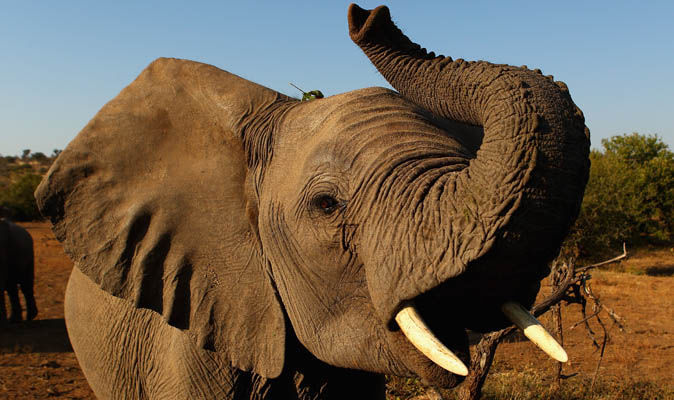1. Elephant trunks contain over 40,000 muscles, making them incredibly dexterous and strong. These muscles allow them to manipulate objects with remarkable precision, such as picking up a single blade of grass or grasping tree branches.
2. Elephants have a highly developed sense of smell and can detect water sources from several miles away. They use their trunks to sniff out food, mates, and potential threats in their environment.
3. Despite their large size, elephants are excellent swimmers and can use their trunks as snorkels while submerged underwater. They often swim across rivers and lakes to reach new feeding grounds or escape predators.
4. Elephants are known for their remarkable memory. They can remember distant watering holes, recognize other individuals, and recall past experiences, which helps them navigate their vast territories and maintain complex social relationships.
5. Elephant herds are led by the oldest and most experienced female, known as the matriarch. She plays a crucial role in decision-making and guiding the group to food and water sources, as well as providing protection from predators.
6. Elephants communicate using a variety of vocalizations, body signals, and infrasound—a low-frequency sound that travels long distances through the ground. They can convey emotions, warn of danger, and coordinate group activities through these forms of communication.
7. Elephants have a unique way of cooling themselves down in hot climates. They flap their large ears, which are filled with blood vessels, to dissipate heat. This behavior helps regulate their body temperature and prevent overheating.
8. Elephants are herbivores with a diverse diet that includes grasses, leaves, bark, fruits, and roots. They can consume hundreds of pounds of vegetation each day, using their trunk to tear, grasp, and shovel food into their mouths.
9. The gestation period for an elephant is one of the longest among mammals, lasting around 22 months. After giving birth, elephant mothers are highly attentive and protective of their calves, nursing them for several years and teaching them essential survival skills.
10. Elephants play a crucial role in their ecosystems as ecosystem engineers. They shape their environments by uprooting trees, clearing vegetation, and creating pathways, which can benefit other species and promote biodiversity. Additionally, their dung provides nutrients for plants and helps maintain soil fertility.

